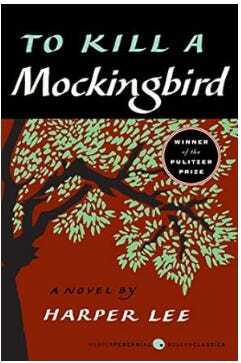T.C. Marti's Blog
May 17, 2025
Brave New World should’ve stolen the show in Sentrys of Terrene

Wow, I’d gone dark a little longer than I anticipated! I managed to put myself into a bind over the last couple of weeks, putting a lot of work into my Interactive Lore Compendium, and found myself in a rush during my final proofread for my epic dark fantasy, Spirit and Water.
That said, my reading had been relegated to, well, audiobook listening. It’s been the case for a while, but lately, it’s been exclusive. Still, it gave me an excuse to bull-rush my way through The School Revolution by Ron Paul, so there’s some light there.
Thanks for reading The Libertarian Book Reviewer! Subscribe for free to receive new posts and support my work.
And it didn’t stop some of that new content I created at the Compendium from seeping its way into some de facto reviews. One of which involved my own trilogy, Sentrys of Terrene - and yes, it’s spelled Sentrys on purpose.
When I first wrote The Rebellion Awakens, I thought I’d get clever and compare its centrally-planned society to something we’d seen in George Orwell’s 1984. But I was wrong. Dead wrong. Because Vranommian Society should’ve been closer to one we’d seen in Brave New World. Allow me to explain with the post I wrote a few days back.
From the Compendium…Oh yes, Aldous Huxley’s Brave New World is a blueprint in the tyrannical Empire of Vranom. Because in this centrally planned society, two things are clear:
Everyone’s life is planned out for them from birth until their scripted death
Everyone’s ultra-pleased about it
I should probably add a third one, too, but very, very few in this society featured in The Rebellion Awakens are “unlucky” enough to cross it. That’s when someone either questions or shows signs of questioning why things are done a certain way.
Nope, in Vranom, you’re expected to sit and enjoy the propaganda shoved down your throat and like the taste of it. And most people don’t just love it, they do so with a smile and bow. They love being told what to eat, what they’re going to do for a living, why the Sentry Order was evil, and that people are an existential threat when left to their own devices. Where have we heard that last one in our own world?
Problem is, in the World of Terrene, super, nuclear-powered governments blew that world to smithereens, leaving just about one percent of its population alive. If Terrene’s global population matched our own and 99.5 percent of it went to the wayside, it would leave us with roughly 400 to 500 million people.
Brave New World should’ve made an appearance in Sentrys of TerreneWhile the Star Wars original trilogy inspired Sentrys of Terrene, another book, Beyond the Wall by Kate L. Mary, helped inspire Vranommian Society. From the wristwatches Sabre Kjaergaard and her peers wear that tell them where they need to be and when, all the way to the type of foods they’re required to eat, plus mandatory medical wellness checks.
That’s all shown in The Society from Mary’s work. Also, Beyond the Wall features George Orwell’s classic. Naturally, it needed to make an appearance in The Rebellion Awakens. And while Sabre saw correlations between it and Vranom, Brave New World would’ve driven it home.
People were blissfully ignorant, happy, and raring to do all they could for the empire. Very, very few of them asked questions, and it didn’t end well for those who did. Sabre found that out when she had the audacity to question her teachers or even hesitate before answering a question. Yeah, hesitation could also put you on the chopping block.
Still, Sabre probably would’ve understood things better had I put Aldous Huxley’s classic atop that refrigerator instead of Orwell’s.
How did 1984 even get into the World of Terrene, anyway?My Renegades Epic comprises five worlds and six series. The “Original Six,” as I like to call them. One world, Terra, is based on our own world, except it’s laden with alternative history. For example, the COVID lab leak theory isn’t just a thing; a “Winter Soldier,” for lack of a better term, was responsible for that leak.
In my works’ lore, Elementals, Mages, and Sentrys can travel through the Five Worlds via archways that are hidden from view. They’re often underground, in bunkers, or hidden in military bases. Their energy pull is so great that, if a normal person born without Elemental, Mage, or Sentry ability tried to go through an archway, the resulting energy cost would kill them.
Thanks for reading The Libertarian Book Reviewer! This post is public so feel free to share it.
That said, an Elemental from the World of Terra brought the book over, and it somehow ended up in Ern Kjaergaard’s hands before Sabre located it. Why they never brought Huxley’s work along, too, I may find out one day.
Anyway, if you’d like to stumble upon 1984 in The Rebellion Awakens, be sure to check it out today!
(This article first appeared on TCMarti.com)
April 30, 2025
Is Brave New World the dystopia we are living in today

Jon Miltimore wrote a fantastic article lately, talking about “books that will rewire your brain.” Two of those books were 1984 and Brave New World. And you may’ve just heard of both.
When people talk about dystopia today, two names come up again and again: George Orwell and Aldous Huxley. Orwell warned us about a future of force, terror, and overt control in 1984. Huxley warned us about a future of pleasure, distraction, and voluntary submission in Brave New World.
The Libertarian Book Reviewer is a reader-supported publication. To receive new posts and support my work, consider becoming a free or paid subscriber.
The question is, which one better describes the world we live in today?
At first glance, Orwell’s vision seems compelling. Governments spy, censor, and restrict speech. Surveillance is everywhere. Dissent is punished—sometimes severely. These are all hallmarks of 1984.
But when you look deeper, the methods of control in today’s world align more closely with Huxley’s predictions. In Brave New World, the people aren't beaten into submission; they’re seduced. They’re drugged, distracted, and taught to love their servitude. Pleasure, comfort, and endless entertainment keep them from ever questioning authority.
Sound familiar?
Look around, and you’ll know the answer in about two secondsAddiction to entertainment? Check.
Medicalization of emotional and psychological states? Check.
Soft censorship through social shaming rather than jackbooted thugs? Check.
Endless consumerism and status obsession? Check.
A public so pacified by comfort that it barely notices (or cares about) the erosion of its freedoms? Check.
Orwell warned us that pain would be the tool of control. Huxley warned us it would be pleasure.
Today, people aren’t storming government buildings demanding liberty. Most of the time, anyway. They’re scrolling endlessly. They’re medicating their discontent away. They’re zoning out with streaming services, cheap entertainment, and dopamine-chasing distractions.
Thanks for reading The Libertarian Book Reviewer! This post is public so feel free to share it.
Orwell imagined a boot stomping on a human face, forever. Huxley imagined a people who would beg for their own chains.
When you strip it all down, Huxley was right.
Our loss of freedom never came through force. It came through apathy, comfort, and distraction. Pain didn’t conquer us. We surrendered for pleasure.
Brave New World, not 1984, is the dystopia we are living.
Want to read one of my Brave New World AND 1984-inspired books? Check out The Rebellion Awakens. You might just find another major inspiration there, too.
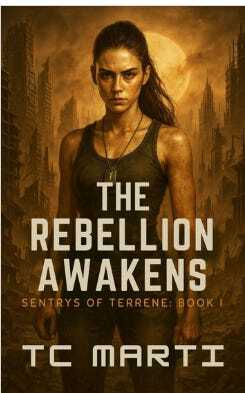
April 26, 2025
Runes for Beginners offers personal power without a permit

One of the biggest inspirations behind my own work was Lisa Chamberlain’s Runes for Beginners. This book helped set the stage for rune magic, or magick, as I like to call it, in my Elementals Universe. That said, as I continue to clean out my author blog and update existing content, I figured, why not review a book that, to this day, sits on my end table.
The Libertarian Book Reviewer is a reader-supported publication. To receive new posts and support my work, consider becoming a free or paid subscriber.
Runes for Beginners offers you information, lays out the history, structure, and practical use of a spiritual system, and then steps back. There is no pushy narrative telling you how to think or what to believe.
You will not find someone breathing down your neck demanding you follow a specific path. Instead, Chamberlain does what true teachers have always done. She presents the knowledge, encourages curiosity, and then leaves it up to you.
The subject matter is Norse runes, a system of ancient symbols used by the Germanic peoples of Europe. These symbols served as both an early writing system and a tool for divination. The book introduces the Elder Futhark runes, which form the foundation of what most modern rune users work with.
Each rune is explained clearly and plainly. Chamberlain touches on its phonetic value, its historical context, and its interpretive meaning in divination. None of it feels forced. None of it feels like fluff. It is what it says it is, a beginner’s guide written for the kind of person who wants to learn something useful on their own time and on their own terms.
For the average reader, that might be enoughBut for those of us who value personal freedom, autonomy, and individual thought, the real power in this book runs deeper.
There is something liberating about a system of knowledge that requires no mediator. No priest. No state-approved expert. No bureaucracy. In a culture bloated with institutions that want to license everything and control access to knowledge, Runes for Beginners feels like a personal act of rebellion.
You don’t need permission to learn these symbols. You don’t need approval to start using them. You don’t even need a guide. You only need curiosity and the willpower to sit down, read, and practice.
I’ve long believed that idea runs with the core of the libertarian worldviewThe state, at every level, thrives by making people believe they are powerless without its guidance. In some cases, that includes what they eat, how they work, where they live, how they educate their children, and what they believe.
Thanks for reading The Libertarian Book Reviewer! This post is public so feel free to share it.
But Chamberlain’s book cuts right through that idea. There are no appeals to authority here. No pages spent reassuring readers that someone more qualified will handle things for them. You’re the one doing the work. You’re the one interpreting meaning. You are the one making choices.
Lack of central authority has always driven me to the Old WaysWhat stands out most about Runes for Beginners is how empowering it is internally. Not in the loud, overproduced, social media-driven way that words like empowerment get thrown around these days.
I mean it in the old-fashioned sense. The book gives you a skillset, a new lens for decision-making, and a way to better understand your own mind. It challenges you to rely on yourself. You want insight into a problem? Cast the runes. Read their meanings. Meditate on the message. Take action. There is no hotline to call. No form to file. No waiting period.
Even the way Chamberlain addresses the spiritual aspects of rune work has a sense of grounded realism. She doesn’t treat the runes like a magical vending machine. Instead, she talks about intuition, symbolic thinking, and the importance of clarity in your questions and interpretations.
There’s no guarantee the runes will always give you the answer you want, and I’m fine with that. It’s not fortune telling. But if you learn how to ask better questions, you might come away with an answer you need.
This mindset encourages personal responsibilityYou aren’t blaming the system. You aren’t waiting on outside validation. You’re sharpening your internal compass. That might not sound political to some people, but for anyone who believes that the individual is the smallest minority and the most worth defending, it absolutely is.
The structure of the book reflects this clarity of purpose. There is a clean layout. The runes are broken down in a straightforward manner. There are no wasted chapters on overly complicated rituals or esoteric dogma.
If you want to build your own method of rune casting, Chamberlain shows you the pieces. She gives examples, practical exercises, and historical context, but never assumes that your experience must mirror hers. You are free to build. You are free to explore.
Some readers might come to this book looking for magick. They will find it, but not in the Hollywood sense. The real magic here lies in the rediscovery of a skill that belongs to everyone but was pushed to the edges by central planners and sanctioned belief systems.
Like so many other traditions, runes were once outlawed or ridiculed, put to sleep, deemed dangerous by the same people who fear what they cannot regulate.
Chamberlain’s approach helps reclaim themThe book also hints at something bigger. A culture that values freedom will always have space for people to explore their own individual spiritual paths without judgment or restriction. The minute that freedom shrinks, systems like this disappear. They are too personal. Too unpredictable. Too hard to put in a box. Which is exactly why they matter.
In Runes for Beginners, Lisa Chamberlain doesn’t try to save the world. She does something better. She equips people to look inward and save themselves. She offers a quiet skill in a loud world. A method for gaining clarity in a time of confusion. And she does it all without leaning on experts, institutions, or arbitrary rules.
If you believe in self-rule, self-reliance, and the right to look inside yourself and seek your own answers, this book belongs on your shelf.
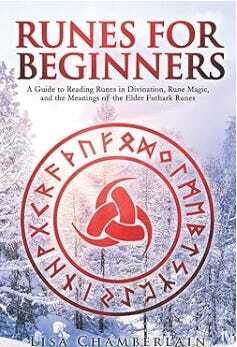
April 22, 2025
How 3 urban fantasy authors inspired Chronicles of Rondure

Author’s Note: I always find it amusing when I go back and update old posts. I wrote what you’re about to read below all the way back in June 2021, nearly four years before I cleaned up this piece. Often, I give posts like these a good old makeover, but I found humor in how I worded things then as opposed to today, and I only made necessary changes. So, enjoy what the 2021 version of TC Marti had to say. That said, the overall formatting and voice for this piece will be way, way different. Oh, and for the record, Chronicles of Rondure refers to a prequel novella, not the series, itself.
E.E. Holmes, Tarah Benner, and Carissa Andrews. Well, at least they write some urban fantasy, but we can really niche them out here. Holmes’ World of the Gateway dives more into paranormal/occult fiction. Andrews genre bends, much like I do. However, her Pendomus Chronicles really lent into developing my own protagonist here.
The Libertarian Book Reviewer is a reader-supported publication. To receive new posts and support my work, consider becoming a free or paid subscriber.
Benner is the only one who we can call strictly urban fantasy. If you’ve read her Witches of Mountain Shadow Series, then you will know what I’m talking about. However, Benner also writes dystopia, and readers know her more for it than her jaunt into urban fantasy.
I actually had gotten a lot of influence from one author of thrillers, named Tracy Lawson. Lawson’s Resistance Series is truly one of the most underrated yet entertaining set of dystopian thrillers on Amazon. So, if we count Lawson’s work, take that number 17 and add another four books, giving us 21 sensational reads.
How did these authors influence Chronicles of Rondure, and to an extent, Elementals of Nordica?
How each author influenced the workLet’s start with Holmes’ World of the Gateway and her protagonist, Jess Ballard. If you know anything about Jess, the girl is a freaking spitfire. And you see a lot of Jess Ballard in Tash Holmes. And in case you’re asking, I DID purposely give Tash that particular last name for a reason. Anyway, Tash, like Jess, is thrust into a role that could ultimately kill her. And also like Jess, Tash isn’t particularly happy about it.
Check out the World of the Gateway while you’re at it!
Let’s move onto Benner, who goes into deep depths describing the way our Aether Witch, Fiona Grimes, performs her magick. Yep, I’m one of those who prefers the ‘k’ at the end of the word. Anyway, there’s a lot of visualization involved, and it was the perfect way to show readers how Tash pulls of her metal morphing ability. Simple hand maneuvers do the trick, but Tash must also ‘see’ the metal bending to her will in the mind.
Learn more about Witches of Mountain Shadow by Tarah Benner.
About two weeks before my rookie author mistake prompted me to write Chronicles of Rondure, I had recently finished reading two of the three books in Carissa Andrews’ Pendomus Chronicles. While Andrews’ Windhaven Witches is the true urban fantasy as opposed to Pendomus, I used a lot of inspiration from her earlier work to mold Chronicles of Rondure. – Again, this is not my Chronicles of Rondure Series.
It features some complex plots regarding her protagonist, Runa. And it was something I’ve hinted with Tash. There’s something crazy significant about this girl, and it’s about to have the dictatorial superpower in full blown panic mode.
Get your eyes in front of the Pendomus Chronicles.
Which brings me to our thriller author, Tracy Lawson. Lawson’s Resistance Series takes place in 2034. Here, the US has sunk into a totalitarian nation full of restrictions. Many of which I’ve used as inspiration for the setting in this prequel magnet. Lawson paints a scary picture, but unfortunately, the Nation of Bastille has taken it a step further with their warmongering tactics. So much that their public has demanded the restrictions to be placed upon them.
Take a look at Tracy Lawson’s Resistance Series.
And just a heads up: I am not affiliated in any way with the above authors since I read books at my own liberty. And in all seriousness, Lawson was the only one I’d known about until late 2020!
What is Chronicles of Rondure about?Here’s the skinny, or the description:
For over a century, the World of Rondure has lived under a dictatorial global power.
The Nation of Bastille Culls children into their military ranks the second they display elemental ability. And to uphold their persistent warmongering, Bastille suffocated its citizens of their civil liberties in the face of numerous safety restrictions designed to protect them from the bad guys.
Tash Holmes, a metal morpher who has evaded Bastille’s Culling for over a decade, embarks on a daring midnight raid to prove that no matter how many restrictions they implement, they protect no one. That safety was never the endgame, but endless profiteering from the racket of perpetual war is the real reason behind the oppression.
If Tash succeeds, perhaps she’ll awaken a few people. If she fails, odds are Bastille will finally Cull her into their military ranks and exploit her ability in the upcoming war against their next manufactured enemy.
Chronicles of Rondure provides a live look into the Superpower Nation of Bastille in the World of Rondure. They will make their debut in Wind Master – Book II in Elementals of Nordica which is set to be released in February 2022.
If you love strong heroines, complex plots, elemental magic, and epic fantasy tropes alongside an advanced yet dystopian society, Chronicles of Rondure is yet another gateway into the Elementals Universe.
Although urban fantasy authors inspired Chronicles of Rondure…It’s not an urban fantasy. And despite the multiple worlds that you and other readers will learn about, it’s not a space opera either. I like to think of both Elementals of Nordica and Chronicles of Rondure, really, as epic fantasies, given their tropes: chosen ones, magical worlds, complex story lines, sword and sorcery, crazy antagonists bent on ending the protagonists, etc.
But, the genre bending involved places each world into a modern-day, scientifically-advanced society. And with both reader magnets, you’re also getting a lot of dystopia. I guess you could even tap both works into urban fantasies, since they take place in urban areas. But, that’s not always the case here, as you will discover in Wind Wielder – Book I in Elementals of Nordica set to be released in January 2022.
Thanks for reading The Libertarian Book Reviewer! This post is public so feel free to share it.
Odds are, I’m sure readers, reviewers, and even authorities in the field will end up giving all of my work a bunch of different labels. And I’m completely cool with it, as long as they enjoy the work!
P.S. for 2025 – What a difference four years makes! I honestly wouldn’t mind rewriting this in my 2025 voice.
(This article first appeared at TCMarti.com)
April 20, 2025
Dark dystopian novels that inspired Chronicles of Rondure

What you’re about to read first appeared on my author blog all the way back in September 2021. Now that I’ve spent the last few days revamping and updating past content - it’s why I haven’t posted here in a week - I wanted to share some hidden gems with you that helped inspire Book I in my Chronicles of Rondure Series, Civil War.
The Libertarian Book Reviewer is a reader-supported publication. To receive new posts and support my work, consider becoming a free or paid subscriber.
At my long-gone site, Action-Packed Book Reviews, I wrote about three books that inspired my Chronicles of Rondure Series. The books in question? The Hunger Games by Suzanne Collins, The Resistance Series by Tracy Lawson (an all-time favorite), and Influence by David Bernstein.
But it was an incomplete list that I concocted off the top of my head. So today’s post gives you a couple more hidden gems that also inspired Chronicles of Rondure. Before I get to them, allow me to give you a quick rundown of what Book I in the series, Civil War, is all about, and why it might be up your alley – especially if you love dark dystopian science fantasy.
Introducing Civil War (Chronicles of Rondure: Book I)I was Culled into the military at age five. That’s just how it works. The empire doesn’t ask for loyalty—they breed it through fear, indoctrination, and blood. For years, I mastered the Smoke Element and became their perfect weapon.
Then I exposed their secrets.
Now I’m labeled a traitor and marked for death. Good. Let them come.
Because I’m done playing soldier.
When they try to extradite me, I’ll call on everything they drilled into me—combat techniques, stealth tactics, and the Smoke Element itself—and turn it back on them. I’ve got one last mission: Unplug the people of Bastille from the lies they’ve swallowed for a century and tear down the illusion of peace.
They created a killer. Now they’re facing a revolution.
Like what you just read? Go get the e-book for 99 cents.
Just what the heck does a dark dystopian science fantasy look like?Technically speaking, you’re looking at epic fantasy and sword and sorcery tropes in Civil War, its prequel, Midnight Raid, and its sequel, BattleFront. A genre-bending series that’s tied in with Elementals of Nordica, Civil War drops you into a dark, dank dystopian world where elemental magic clocks in as a lethal fighting force.
Unlike Elementals of Nordica and the Terrian Chronicles, which feature ensemble casts, you’re getting more of the classic first-person, present-tense view here and only a single point of view. And while Chronicles of Rondure entwines with Elementals of Nordica, the Terrian Chronicles, and even a trilogy called Sentrys of Terrene, you can read it as a single series, without the need to dive into the other works if you choose not to.
Overall, if you’re a fan of genre-bending, elemental magic, and sword and sorcery, you will love Mina’s story as she seeks to unplug the populace from a Cull that she will learn comes in more ways than one.
Anyway, now that you have an idea of what these dark dystopian novels look like, let’s explore those books that planted some twisted ideas into my mind.
Which dark dystopian novels inspired Chronicles of Rondure?Pendomus by Carissa Andrews wasn’t the first of her works that I stumbled across. And while it was far from my favorite series from her (Windhaven Witches is hard to beat), it really set the stage for what was to come when I wrote Chronicles of Rondure.
In it, we follow Runa, who spent her entire life in the restrictive Helix. In the Helix, they give you everything you need to make your life comfortable. You have ration-caps to keep you healthy, a nifty device implanted into your brain that allows you to recall anything you want, a well-placed job to help ensure the survival of the Helix, and they’ve even figured out ways to maximize your productivity by limiting sleep to just 30 minutes per day.
Yeah, that latter part would be nice. But what they don’t tell you is this – fall out of line or even question the ways of the Helix, then a madman will lead you to a fate worse than death. This madman just happens to be relentlessly hunting for Runa. And he’s so bent on hunting her down that he’s literally bending time.
Thanks for reading The Libertarian Book Reviewer! This post is public so feel free to share it.
A bit of a fun fact: Pendomus also indirectly inspired Wind Wielder in Elementals of Nordica. For one, we learn about a madman endlessly pursuing our protagonists. And Wind Wielder’s description loosely follows that of Book I in Andrews’ genre-bending series.
Beyond the Wall by Kate L. Mary was my current read way back when I first wrote this article, and I took endless notes, or mental notes, regarding much of the content in what was her latest dystopian series. I’m not going to elaborate on the plotline since it sort of mirrors Pendomus – our protagonist, but I’ll give you a rundown.
Drea Young lives in what they call the Society, which, like the Helix, gives you everything so long as you follow its orders. I’ve also seen many similarities between Traeton (Pendomus) and Jerrick (Beyond), the love interests of Runa and Drea, respectively.
While Beyond the Wall didn’t inspire the series’ prequel, Midnight Raid, you’ll see a lot of inspiration between the Society and the Bastillian Empire, also known as the Nation of Bastille, or the Superpower Nation of Bastille. The only real difference is that, as you will learn in the Chronicles of Rondure Prequel, Mina’s a little further ahead of the curve than Runa or Drea.
April 12, 2025
Bonus Review: Rise of the Coven by E.E. Holmes

The following review initially appeared on my author blog. Since I’d been giving you an extensive deep dive into World of the Gateway, I figured I’d share the review with you after stumbling across it.
Overall, I consider Rise of the Coven the last great book in the series, as Books VIII and IX had gone rather stale in character development. Anyway, feel free to check out the sequel to what should’ve been the series finale. Note that while I sound contradictory below, I did write this review back in January 2023, before Holmes released the next books.
I’m not shy when I say E.E. Holmes’ Gateway Trilogy and Gateway Trackers series were direct influences on my own work, specifically my alternate history fantasy series, the Terrian Chronicles and the Catenarian Chronicles. That said, you could guess that I was ecstatic to say the least when Holmes announced Rise of the Coven marked the series’ first book in three years. And it did not disappoint.
The Libertarian Book Reviewer is a reader-supported publication. To receive new posts and support my work, consider becoming a free or paid subscriber.
This book contains most of your favorite characters from past installments, with a few exceptions. However, it makes up for it with one character who I found ultra interesting, and odds are, they will be a staple for quite some time. Holmes also left enough loose ends in Rise of the Coven to write at least one more book in the Gateway Trackers. But something tells me Jess and Hannah’s adventures are nowhere near finished. (2025 note: I wish I’d gotten this prediction wrong)
Rise of the Coven features a new threat to the Durupinen, a sisterhood born with a birthright to aid spirits to cross into the next realm. This threat, however, isn’t who you may think it is, if you read the previous books. Instead, it stems from someone, or a coven, that you didn’t see coming.
What I Liked About Rise of the CovenFor me, the blindside was epic. From the title to the book’s description, I knew this mysterious coven was the antagonist. But it didn’t come from the people in power. Instead, this coven rose from a group of characters you wouldn’t take so seriously.
I also loved our latest Caomhnoir (think I spelled that right), Rana. She’s a feisty character who, from the first scene, you want to see more of. No character grows more in this book than Rana, and there’s reason to believe her arc is just beginning. Rarely am I such a fan of supporting characters, but Rana is one massive exception here. (2025 note: I named a book character after her in Rise of the Sentrys)
Thanks for reading The Libertarian Book Reviewer! This post is public so feel free to share it.
What really got me, though, was my sympathy toward our antagonists. Specifically the primary antagonist, Aisling. While I pulled for Jess and Hannah in this book, I also couldn’t help rooting for the “bad girl” following the climactic scene. All I am going to say is, you will feel for an individual who may come off as a bit of a sociopath, the more you get to know them. (Another 2025 Note: I named a character after Aisling in Spirit and Water)
One thing I’ve admired about Rise of the Coven, along with the rest of E.E. Holmes’ work, is that they don’t contain your classic good vs. evil trope. I find the trope to be long past its due date, and often close books immediately if I come across the oft-overused storyline. Once again, Holmes showed that, although Jess has always sided with the Durupinen, they are nothing more than the lesser evil, if that.
What I Didn’t LikeOne of my biggest gripes here is that there were plot points that I felt were either forced or otherwise disappeared. For example, Jess’ task with her mentor, Fiona, appeared to be something more pertinent to Rise of the Coven, before it disappeared into nothing more than a side note. However, we did get another glimpse of this toward the falling action scenes, so it may be something we see in later installments.
I also wasn’t a fan of what I thought was going to be a more dramatic climactic scene. Jess had been dreaming of what appeared to be a tragedy. And the Seer that she is, the dream kind of came true, but it turned out to be more of a joke than anything else. I felt Holmes was being misleading here, building up for something with a great deal of foreshadowing, before, well, you’ll just need to read it for yourself.
There was a lot in this book that I felt Holmes could have cut out, and it would have been just as good of a read. I also thought the entire engagement angle (won’t say who’s getting engaged here) was rushed. While I’m cool with blindsides, this one had more of a WTH vibe to it.
RatingI would give Rise of the Coven 4 out of 5 runes - yes, I used to experiment giving books runes instead of stars. While the Gateway Trackers is one of my favorite series and deserves its own fandom, this one didn’t keep me on the edge of my seat as much as I’d have liked. And as mentioned, some storylines and settings fade into thin air that Holmes could have axed.
However, I went into this book with a good idea of who made up this coven and found myself blindsided. It was a pleasant surprise, and I also loved the sympathy Holmes made me feel for their leader. That’s a rare talent this author has, and one I’ll never have. (2025 Note: I’m still going strong there!)
While I missed some of the characters we met in early installments, mainly Karen, who appeared in one measly scene, and Tia Vezga, who didn’t appear at all, I didn’t hold this against Holmes. Characters like Rana, Gemma, Aisling, and others filled the gaps well, and I can’t wait to see more of them.
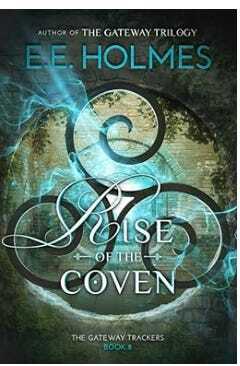
April 10, 2025
Gatsby at 100: Life lessons, lost loves, and a bit of Ron Paul

Are you ready to feel older? Like, way older? I first read The Great Gatsby in 2007, when it was just 82 years old. A lot has changed since then. For one, very, very few people seemed to take Ron Paul seriously, despite the fact he was about to get more than a few predictions right, like the housing crisis.
The Libertarian Book Reviewer is a reader-supported publication. To receive new posts and support my work, consider becoming a free or paid subscriber.
Alternative media was rather niche. Beyond niche, really. Cell phones were just beginning to take the form we’ve come to know them today. And the only thing I cared about during my junior year of high school involved hitting the weight room after spending sixth period lobbing paper wads when my Geometry teacher had her back turned. And then laughing when she kicked my friend out of class for the ‘crime.’
But at least I found a gem in The Great Gatsby, a novel that didn’t become so popular in the American lexicon until the 1940s when the U.S. military included it in Armed Services Editions during WWII, not long after F. Scott Fitzgerald died of a heart attack. Fitzgerald may’ve thought the book failed, but 100 years later, it’s safe to say The Great Gatsby is still going strong.
If you haven’t yet read The Great Gatsby, do yourself a favor…Even if tragedy isn’t your genre of choice, pick up this book and read it. I rarely read the genre myself, but it’s more than worth it. A lot of life lessons, really. Let me jot down a few:
The grass isn’t always greenerNo, it ain’t. Have you ever thought of leaving your hometown for greener pastures? For me, it involved living in the city as opposed to the village and small-city outskirts I grew up in. For Nick Carraway, it meant moving from the Midwest to Long Island.
Carraway learned that he wasn’t cut out for life in the Northeast, much like the Buchanans and Gatsby. Sickened from his experience, he moved back to the Midwest.
As for me, city life was miserable. It was like being trapped in a cage. Traffic was always bad. Buildings making up the skyline, so breathtaking from the outside, were nothing but cold metal and weathered brick buildings from the inside. And everyone seemed like they were in a hurry.
Never obsess over a past loverMy friends laugh at the number of female K-pop idols I crush on. But moving to Korea to be near the scene isn’t an option. Unfortunately for James Gatz, his love for Daisy Buchanan blinded him, and he did everything he could to try and win her over.
But then again, this one may have stemmed from F. Scott Fitzgerald’s obsession over Ginevra King. King married an ex-polo player, Bill Mitchell, thanks to her father allegedly pre-arranging the marriage. In the novel, Tom Buchanan is an ex-football star at Yale, so there are a lot of correlations here.
Yeah, it’s much better to pull a Fitzgerald and write about these things as opposed to pulling a Gatsby and going into full creeper mode. And yes, before you ask, there’s a good reason for a survival thriller trilogy I’ve been working on for about a year and a half now under a slightly different pen name (T.C. Marti) that involves a K-pop idol and a sports writer in lead roles. Just sayin’...
Thanks for reading The Libertarian Book Reviewer! This post is public so feel free to share it.
Don’t have extramarital affairsGoodness, that Seinfeld episode when an engaged George Costanza tried to date Marissa Tomei just popped into my head. Anyway, if you’ve read The Great Gatsby, you’ll know where I’m going with this one.
We got Tom Buchanan seeing Myrtle Wilson behind her husband’s, whose name is ironically George, back. Then, not long before Jay Gatsby has Daisy in his crosshairs, he befriends and relies on Nick to get what he wants. And the next thing you know, two extramarital affairs are going on here. That we know about, anyway.
Listen, there is a really, really easy way to avoid this - Just sign your first-round draft pick to a lifetime contract that includes incentives like date nights and spending time sharing common interests.
And you can bet that if I ever get married, I doubt I’ll be writing about sports writers and K-pop idols facing death-defying scenarios…unless I end up ‘pulling a Travis Kelce,’ K-pop style.
Always remember that the government is almost never right - and I’m being generousProbably the most important life lesson here. But you can’t help but ask: Would Gatsby and Daisy have ended up getting married if Wilson never inched America closer to its current role as an empire? We’ll never know, but the odds may’ve been in their favor.
Tom did his research on Gatsby and discovered he was a bootlegger. Of course, this took place during the days of prohibition, both when the novel was written and in 1922, the year in which it took place.
This isn’t to say Gatsby wouldn’t have ended up making his fortune by engaging in illegal activity some other way. If that activity should actually be illegal, that is. But this revelation was the final nail in the coffin for Daisy staying with Tom. It’s crazy to think that bootlegging something like alcohol was looked at in such a way these days.
But then again, I’d said the same thing about the entire Drug War for a while, and so have others. If it hasn’t been won yet, it probably never will be.
Anyway, everything in this section is more speculative, but I hope the message at least sinks in: Just because the government does, supports, or enforces something, it can cause quite the butterfly effect.
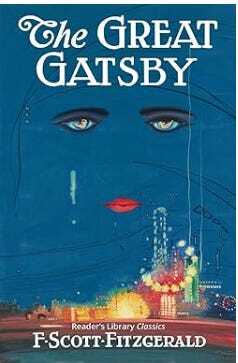
April 8, 2025
Children’s books pack quite the punch when horrors of war take center stage

Wow, we got a couple of older works lined up today, one of which I recently listened to on audio. But a pair that will pack a punch well into the future. Across Five Aprils tells the story of Jethro Creighton, the youngest son in a family whose brothers and mentor go off to fight in the War Between the States.
Meanwhile, Number the Stars takes place about eight decades later in Copenhagen, Denmark, where Annemarie Johansson sees her country under Nazi Germany’s control. The kicker here is that her best friend, Ellen Rosen, is Jewish, which immediately heightens the tension.
The Libertarian Book Reviewer is a reader-supported publication. To receive new posts and support my work, consider becoming a free or paid subscriber.
Jethro and Annemarie are both trying to make sense of what’s going on as turbulence enters their worlds, thanks to the full-scale wars. The irony? Jethro’s side is fighting to force the Confederate States back into the Union while Annemarie is trying to wrap her head around why Denmark just let the Nazis march right into Copenhagen.
‘Pack quite the punch’ is an understatementMost of you reading this are libertarian, and we’re about as anti-war as we can get, and rightfully so. Still, many have such a fascination with war that it’s dominated the literary and Hollywood landscape for generations, and that likely won’t change.
Heck, even my own books are plagued with war, even if it’s more of the antagonists chasing and cornering the protagonists, which tackles the natural right to self-defense. But a lot of us will lose fascination with war overnight if we read novels during such times that came from a child’s point of view, even if they’re somewhat shielded from its realities.
Jethro had to watch his brothers go, one of whom ended up fighting for the Confederacy. His teacher, Shadrach, also went to war, where he’d be severely wounded in Gettysburg. With Jethro having no means except for newspapers and word of mouth to stay updated, uncertainty and worry plagued him throughout the novel.
Early in Number the Stars, Annemarie notices a popular shop owner’s store is left vacant, with a sign written in German plastered to the front. It’s not long until it’s clear that the Nazis are rounding up Copenhagen’s Jewish population.
For me, these books took a toll since I put myself directly in their shoes. Imagine being a kid and noticing those you’ve gotten to know disappear, as in Annemarie’s case. For Jethro, he’d heard of how intense the fighting was and how Union soldiers were deserting, given the horrors they’d been forced to face.
The sad truth and harsh realities persist to this dayBoth had to process, at a young age, the psychological effects of intense war, even if they didn’t see the carnage. And what’s even more tragic about this is, here in 2025, little has changed. We’ve had a global War on Terror, which has done nothing but create more terrorism since it was launched - see Enough Already by Scott Horton.
Fast-forward to today, where the War in Gaza, the Russo-Ukrainian War, and the War in Yemen have taken hold in media spheres. Look at every war that’s been fought since World War II, and how many Jethro Creightons and Annemarie Johanssons are there? Tens of millions, if you want a conservative guess.
As for Jethro’s case, this war started for what? Because a group of states wished to exercise their right to self-determination and secede? Something Ryan McMaken of the Mises Institute constantly reminds us?
A rapidly expanding central government led by a president who’s often deified in American history could have dismantled Union bases in the Confederate States. Instead, he decided to provoke the Confederacy into firing on Fort Sumter.
A rapidly expanding central government led by a raging psychopath that is rightfully maligned in world history helped to perpetuate the deadliest conflict the world had seen.
Thanks for reading The Libertarian Book Reviewer! This post is public so feel free to share it.
Randolph Bourne once said, “War is the health of the state.” That appeared to be the case between 1861 and 1865, especially when you consider the interventionism that followed, such as the Plains Wars, the Spanish-American War, World War I, and World War II. As for the post-1945 world, has anything changed?
And to these people, they don’t care about how it affects kids or what they’re forced to deal with.
Number the Stars and Across Five Aprils are major recommendations…These might be children’s books, but of all the works I’ve discussed, they may be the most moving. It’s easy to sit here in our comfortable chairs and look on at what’s happening in Gaza, Yemen, or Ukraine. Or from the local gym when MSNBC is blaring things from one angle and Fox News from the other.
Can we really grasp what war or its byproducts look like when we’re thousands of miles away? And while neither Lois Lowry nor Irene Hunt had seen action, they still plant the reader right in the middle of the situation, from Annemarie’s and Jethro’s respective points of view.
It gives us a strong idea, then, of what each conflict looks like up close and personal. Jethro had to deal with losing one sibling and coming close to losing his teacher. Annemarie had to watch her best friend go into hiding in neutral Sweden, not knowing when she’d see her again.
One major takeaway here is that, despite what Jethro and Annemarie went through, the older characters shielded many of the realities. Jethro, throughout Across Five Aprils, became more and more aware of the realities.
Annemarie found herself shielded more than Jethro, but her story took place over a substantially shorter period. Still, she had run-ins with the Nazis. She was there when her family played a major role in helping the Rosens and other Jewish families escape Denmark. And she took part in a courageous act, even if she didn’t realize it until after the fact.
You want your kids to read these booksHistorical fiction has always been that genre that isn’t my undisputed favorite, but one I’ll read time and again. Across Five Aprils and Number the Stars are two books that have stood the test of time with me, having read them in my teenage and pre-teen years, and again as I approach my mid-thirties.
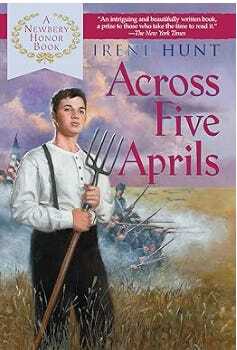
They’re great books that, even from a child’s point of view, still grasp the sheer horror of both situations. Similar situations, despite the differences in time periods. Both books will show kids that war isn’t some Call of Duty game or even what they may see on mainstream news.
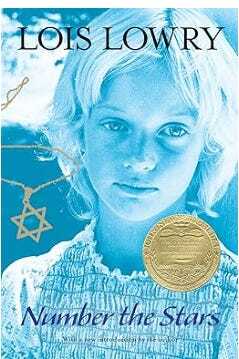
It’s a “game” of uncertainty, strife, and one that rips people from one another. Jethro had his brothers and mentor ripped from him, while Annemarie had her sister (before the novel), familiar faces, and best friend ripped from her.
April 4, 2025
3 hidden gems that inspired an old world dark epic fantasy

As one book launch came and went, I had another on deck for a while. Or, maybe the term ‘relaunch’ is more appropriate? As you know, I launched Cursed Mage on March 3rd, which was the first Monday in March that also happened to be my late grandmother’s 83rd birthday.
The Libertarian Book Reviewer is a reader-supported publication. To receive new posts and support my work, consider becoming a free or paid subscriber.
That said, the launch bore a lot of significance, and I was happy to see the work perform well on launch week. For Cursed Mage, it’s on to reaching new readers via Amazon and later, BookBub ads, something I have zero experience in and will probably cost me some money in the early going.
Anyway, I also found an audience that’s more ingrained in old-world fantasy, which also prompted me to an upcoming relaunch of my book Spirit and Fire. But since I tend to be attracted to darker subject matter for reasons I’ll never know, the work was bound to have a rather grim attachment.
No, not grimdark, but rather, nobledark, where there’s a glimmer of hope. For the longest time, I saw Spirit and Fire as a backburner novel. One that readers would pick up if they were curious about some of the historical backstory talked about in my Elementals of Nordica Series.
After gaining four measly ratings on Amazon and like seven on Goodreads, my projection came true. This series was sit and forget, and nothing more. Fast-forward to October 27th, 2024, the day after my brother’s wedding, and I again found myself with a stable internet connection as opposed to anything I’d get in a hotel.
I saw I had six ratings, then not long after, seven. These days, I peaked at nine ratings in Amazon’s US store. Yeah, that’s still a minute number, but it did, after running a free promo that was exclusive to my mailing list only, show the work had potential, and that a relaunch was in order.
Thanks for reading The Libertarian Book Reviewer! This post is public so feel free to share it.
So, it’d been on my calendar while I worked to get Cursed Mage up and running. And in the process, I’d gotten new covers for Spirit and Fire, plus its successor, Spirit and Water. While I’ll talk more about these two books and their themes in a later post, today I wanted to recognize a few that inspired this dark epic fantasy.
Fog and Mist by Kelsie EngenThis one is a dark retelling of Snow White with some other classic tales mixed in. And if you wanted a more brutal outlook for a protagonist, this story’s for you. It entails a princess named Winter who finds herself arrested and sold into slavery in the book’s inciting incident.
Who was the culprit? Her stepmother, Blanche. Talk about a massive fall from grace, and it’s one that Winter will have a tough time regaining ground from. It also brings in an ultra complex plot, putting the brain through quite a workout.
Seeing a character struggle through the lowest of lows in this dark fantasy made its way into the backstory of Mali LaSalle, my protagonist in Spirit and Fire. Mali’s no Crown Princess, and if you want the truth, she hates Monarchs with a passion.
But Mali also knows that her ancestors once held a prominent place in the fictional nation of Tamuria before a ruthless leader usurped them centuries before the novel’s events. Mali, a member of Tamuria’s Untouchable caste, branded by the X-shaped scars on the back of her hands, is still paying the price for her ancestors’ loss.
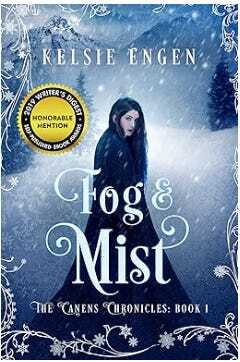 The Healing Glass by Maria Herring
The Healing Glass by Maria HerringI first read The Healing Glass in 2019, and to this day, it’s the most unique and complex book I’ve ever crossed. That’s a compliment, by the way, and one in which libertarians would fall head over heels for.
There’s a sickness raging through the land, and Audra, an Academician, is needed to translate directions so she and a small brigade can locate a cure, an ancient relic called the, you guessed it, Healing Glass. But there’s also something rather mysterious about Audra, and she’ll learn that significant something about herself on this journey.
Little does Audra and her brigade know, however, that another group of people is after the same relic.
As for Mali in Spirit and Fire, it’s not long until she uncovers something significant about herself. It also explains the real reason why her lineage is in the position it’s in, and that all of it came by design. But instead of relics, it’s a certain group of people she and her own small band of heroes must locate before the regime does.
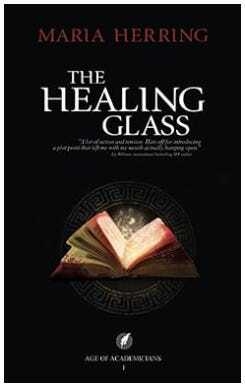 Fate of Crowns by Rebecca L. Garcia
Fate of Crowns by Rebecca L. GarciaAh, there’s nothing I love reading about more than ultra-corrupt governments and leaders, and Fate of Crowns has them. Now, this book was kind of annoying since the protagonist saw through her evil father’s corruption time and again, except she justified or made an excuse for it at every turn.
But, much like Winter in Fog and Mist, this girl, whose name is also Winter, has a penchant for landing herself in some of the most undesirable situations. Many of which either offer a false sense of security or involve taking a massive risk in which she hopes she didn’t just land herself into more trouble by trusting another character too much.
This book inspired Spirit and Fire more than any other. Of course, corrupt Monarchs were always on the menu. But I also threw in one massive false sense of security that ended up with Mali and them fighting for their lives on multiple occasions.
Then, there’s Mali’s rough-around-the-edges personality, something I discovered immediately from Winter. The only difference? Winter here is a princess who’s lived an easy life. As for Mali, she’s been an Untouchable since birth and was destined for back-breaking labor in the fields.
Each of the books listed above are hidden gems that you probably never heard of and ones that deserve another whirl from me at some point in the near (or distant) future. Each work holds some underlying libertarian concepts, especially The Healing Glass, but I’ll also warn you that they’re very, very dark reads.
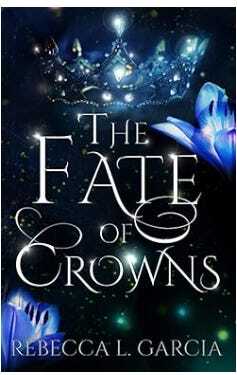
April 2, 2025
Kerry McDonald’s Unschooled drove home one epic and familiar quote

Remember when I said I’d be celebrating the 65th anniversary of To Kill a Mockingbird at some point in 2025? Yeah, that was until Kerry McDonald’s Unschooled changed my plans…sort of. While To Kill a Mockingbird won’t be read (again) until this summer, likely at the same pace I read Spirit Prophecy because it’s a book craving to be studied more than necessarily read, I also knew I needed to get a head start here.
Unschooled is one of several books I’m reading/listening to before I make more edits to my young adult libertarian academy fantasy, The Arcane Prophecy, whose prequel is already available. While the work doesn’t contain an unschooling angle, themes of more self-directed, alternative education are aligned here since the Arcane Elemental Academy has 32 different schools for prospective students to choose from. And none of them involve a coercive learning environment.
The Libertarian Book Reviewer is a reader-supported publication. To receive new posts and support my work, consider becoming a free or paid subscriber.
Based on my own reading, I’m glad to see that I’ve gotten rid of most of my coercive schooling conditioning. But even in my thirties, some remnants remain. And thanks to books like Unschooled, I learned I still got work to do in creating an even less coercive environment in Arcane.
Anyway, let’s get to the good stuff: The quote from Harper Lee’s To Kill a Mockingbird gives us yet another libertarian take in fiction, whether or not it’s what Lee intended.
Scout Finch’s epic quote about school in To Kill a Mockingbird“As I inched sluggishly along the treadmill of the Maycomb County school system, I could not help receiving the impression I was being cheated out of something. Out of what I knew not, that I did not believe that twelve years of unrelieved boredom was exactly what the state had in mind for me.”
Before I take a deep dive, let’s answer a critical question: What do we know about Scout? We know she’s a highly intelligent, naturally curious girl with a sharp tongue who loves to explore. Heck, she’s the daughter any parent who values intellect would want.
Okay, side note, because I just had to know this: The second I wrote that above sentence, I asked Chat GPT which House Scout would find herself in if she were a Hogwarts student.
Chatty’s answer? Ravenclaw or a rebellious Gryffindor. I said Ravenclaw through and through, so welcome to the Blue and Bronze (NOT SILVER), Scout Finch! Home of the Eagles (NOT the Ravens)! Honestly, the above quote told us all we needed to know regarding Scout’s prospective Hogwarts House. Anyway, back to the discussion…
Kerry McDonald’s clever use of Scout’s quote drives home the mundaneness of state schoolingAnyway, now that we know what Scout’s like, what makes this quote so ingenious on Kerry McDonald’s part? Well, let’s break it down:
For one, I love the word ‘treadmill’ here, plus the phrase ‘inched sluggishly,’ because it shows us that Scout isn’t keen on stepping into school. And it also gives us an idea of how she sees it: boring, a waste of time, and a repetitive process.
Then, she talks about ‘being cheated out of something,’ and we can all relate to that. Sitting in school for up to eight hours a day, forced into discussing material we’ll never use or even think of again, that may or may not even interest us. For Scout, it’s a hint there’s something more worthwhile she’d rather learn, as opposed to sitting in a classroom.
While Scout can’t figure out what she’s missing out on when she says, ‘Out of what I knew not,’ she still knows it’s missing from her education. Didn’t all of us?
Thanks for reading The Libertarian Book Reviewer! This post is public so feel free to share it.
And, finally, “that I did not believe that twelve years of unrelieved boredom was exactly what the state had in mind for me.” I love this last part, because it aligns with that ‘good intentions’ quip we often hear, followed by ‘unintended consequences.’
While I’m not one to hand the state or education system any benefit of the doubt, I’ll concede that there are (very) select people working at the bureaucratic level who believe such coercion is “for our own good,” as wrong as they are.
In Scout’s case, she doesn’t believe the powers that be intended for perpetual boredom, but that’s what she experiences when school is in session. Another side note: No wonder Ravenclaws never win the House Cup - maybe even a school like Hogwarts would bore us half to death!
Scout drives home the problem with modern-day schoolingWhile To Kill a Mockingbird is set in the 1930s, Scout’s quip resonates well with modern-day schooling, and even schooling back when I was a student. How many times had I sat at a desk in science or math class, (silently) asking myself, “Why am I here?”
How many times was I writing up NFL mock drafts or sneaking draft magazines into school, reading them in study hall instead of doing or catching up on homework? Or, reading novels when I was supposed to be reading a textbook?
A lot. Why? I saw zero value in what I was supposed to be learning because it wasn’t even remotely interesting or useful. I can count on one hand the material I retained in my eighth-grade science class, just to throw out an example. As for what I retained in my earlier school days? Fragments.
And I’m sure many of you can relate. Heck, I can name hordes of former classmates who never fared well in school. Are they all unsuccessful people because they had an average, at best, GPA? Not in the slightest. Traditional schooling is by no means a one-size-fits-all institution. At best, it’s one-size fits few - and that’s me being generous.
For those of us whose interests lie outside the classroom - didn’t Fred and George Weasley hint at that in Harry Potter and the Order of the Phoenix - traditional school is a waste of time and energy. And worse? It takes valuable years away from our lives.
I know that. Scout knew that. And authors like Kerry McDonald know that. I always said I’d ace math if I could’ve tailored it into sports stats. Heck, it also would’ve better prepared me for my day job.
